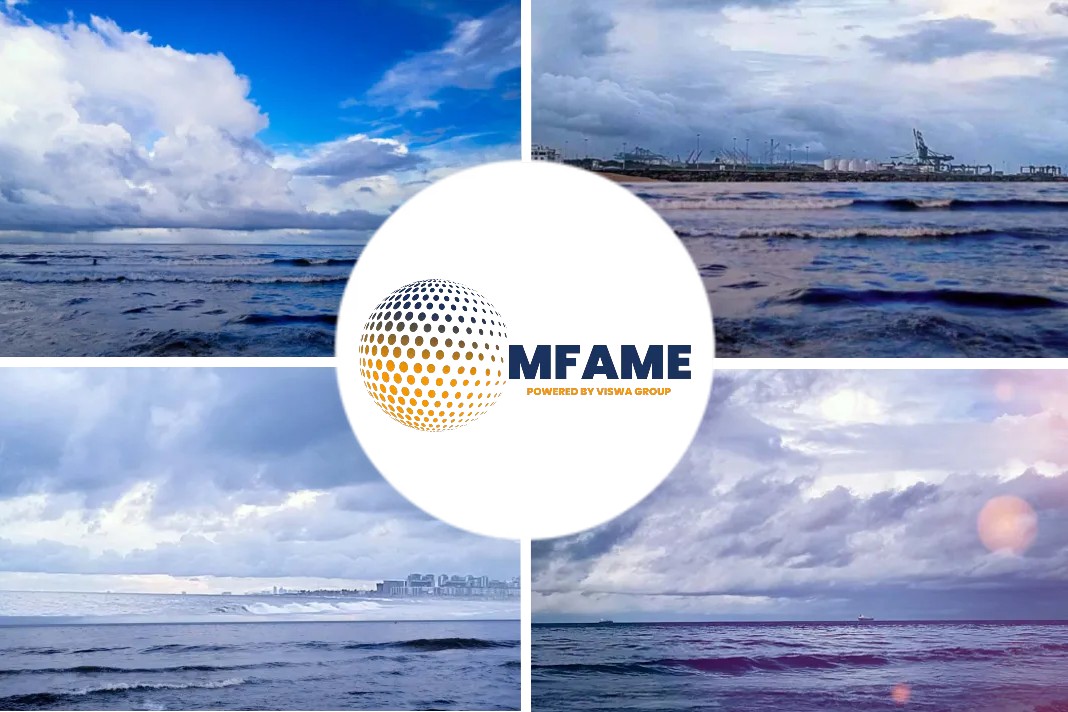- Only a few months ago the shipping industry was wringing its collective hands over the demise of plans to establish an International Maritime Research Board (IMRB) administered by the IMO.
- $2 a tonne is lost in the noise of the monthly fluctuations of commodity price movements, a level of ‘donation’ that the shipping industry was quick to dismiss as an insignificant increase in fuel costs at the time.
- Shippers are under just as much pressure to decarbonise their supply chains and are looking for initiative and leadership from their carriers.
Director of Global Shippers Forum (GSF) James Hookham has a clear message for container lines pondering what to do with their massive cash surpluses, says an article published on splash247 website.
How do they spend all that money?
Only a few months ago the shipping industry was wringing its collective hands over the demise of plans to establish an International Maritime Research Board (IMRB) administered by the IMO and funded by a $2 per tonne levy on bunker fuel.
Its purpose was to finance collective R&D into advanced fuels and alternative technologies that are essential to decarbonising shipping. The plan was in line with the IMO’s own strategy, if not the more ambitious Paris Agreement goals.
Unbelievably, in the year of outrageous profits, the shipping industry is pleading poverty and insisting it effectively needs to ‘crowd-fund’ it’s much-stalled decarbonisation programs, rather than raise the money from its shareholders.
$2 a tonne is lost in the noise of the monthly fluctuations of commodity price movements, a level of ‘donation’ that the shipping industry was quick to dismiss as an insignificant increase in fuel costs at the time.
IMRB proposal
But principles matter, and what the short-lived history of the IMRB implies is that the shipping lines were not prepared to fund their own efforts to meet the climate change challenge and would only do so out of new revenues raised from its customers – this would inevitably result in an extra burden on shippers in the form of a BAF increase or a “value added” surcharge to cover this additional operating expense!
The IMRB proposal hoped to raise $5bn over 10 years. That’s a mere 3% of last year’s annual profits for the container shipping sector alone.
The IMRB proposal hoped to raise $5bn over 10 years. That’s a mere 3% of last year’s annual profits for the container shipping sector alone; with forecasts of a continued bonanza for lines in the first half of this year.
Perhaps the bigger question in the context of the urgency to address shipping’s decarbonisation challenge is if $5bn was sufficient over a decade then what could be achieved now with $50bn, which could easily be accommodated from these unprecedented profits?
Looking for initiative and leadership
Before the debate is resumed at IMO on the proposed carbon levy on fuels of $150-300 per tonne, then why don’t those lines who are willing and anxious to make progress just get on with it and kick-start the R&D funding themselves, with a sizeable and significant donation to their pet project from this year’s profits?
Shippers are under just as much pressure to decarbonise their supply chains and are looking for initiative and leadership from their carriers. Lines that can demonstrate quantifiable progress will gain support.
There has got to be something more positive and inspiring to offer customers this year than just the prospect of a wholesale culling of less efficient ships (and capacity) in the impending ‘turkey shoot’ required by IMO’s 2023 energy efficiency rules.
Here is the moment for the lines to abandon the group-think mentality (embedded through the alliances and consortia business models) and let leaders and winners emerge. Those that dither or believe they can live off the efforts of others will be noticed.
After a year on the front pages of the global media the shipping industry is now squarely in the crosshairs of public accountability, as are those that use its services. There is little to lose and much needed credibility to gain.
Furthermore, a meaningful and eye-catching gesture early this year just might persuade the European Union to delay applying its Emissions Trading Scheme to the services that use its ports, which will no doubt add yet another item to customers’ invoices, should it go ahead.
Having lived well off the consequences of global misfortune for the past 18 months, and set to earn more from the continued capacity cruch, it would be good to see the global shipping industry putting something back into our collective future from the proceeds.
Did you subscribe to our daily newsletter?
It’s Free! Click here to Subscribe!
Source: splash247























